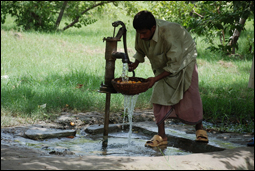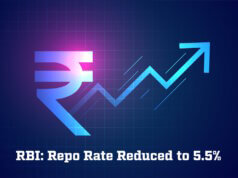India has renewed its efforts towards ensuring water supply and protection, waste management, pollution control, sanitation and clean air, especially since Prime Minister Narendra Modi launched one of his government’s key campaigns that emphasises on water and sanitation projects in both urban and rural India. The government has already increased its focus on infrastructure, public transport, solid waste disposal, sewage treatment and drinking water. According to statistics, about 42 million tonnes of solid waste is generated per year in urban India with per capita waste generation rate ranging between 0.2 and 0.6 kg per day.
“The industrial sector has increased from 6 per cent to18 per cent. Issues and challenges for water and wastewater industry in India are burgeoning demand for water, regional disparities, groundwater depletion, and contamination and inefficiencies in usage. Hence, there is an urgent need for efficient water management, enhanced water use efficiency and wastewater recycling,” Sunil Bhor, AGM – Environmental Sales & Marketing, Endress+Hauser India Pvt. Ltd, said.
These issues and challenges in the water and wastewater industry will be discussed threadbare at IFAT India 2014, the Indian edition of the world’s largest trade exhibition on environmental technology, which will be held in Mumbai from October 9-11, 2014. Exhibitors from all over the world will showcase a range of world-class products and services in the environmental industry, encapsulating sectors like water, sewage, refuse, recycling and energy conservation.
IFAT India is a platform that provides municipal and government bodies and authorities to witness solutions for environment technology under one roof. Both national and international players of this segment participate in this trade fair. IFAT India 2013 saw the participation of over 130 exhibitors from 17 countries and attracted close to 5,000 trade visitors.
“Trade fairs such as IFAT India have been a great platform for bringing international key decision makers, customers, and solution providers under one roof,” Bhor added.

Bhupinder Singh, Deputy CEO, MMI India, the organiser, said, “The trade exhibition would offer an opportunity for foreign water treatment, recycling and sewage companies to collaborate with Indian players and generate revenues in the lucrative Indian market. International exhibitors will present future-orientated innovations for sustainable use of resources in the industrial nations as well as adequate technologies for the developing countries.”
Parallel to the exhibition there will be various conferences like professional training in the water sector, training for wastewater treatment plant operators in India, green jobs in the Indian water sector and training in the textile industry of Bangladesh. Eminent speakers from the industry will be present at this event, which will also include symposia and workshops.
Experts feel there is also an urgent need for action on sewage treatment. According to Germany Trade & Invest, only approximately 30 per cent of urban sewage is currently treated. Siddharth K. Desai, Director, Kishor Pumps, explained: “The treatment plants for domestic sewage are mostly financed by local municipal corporations or municipalities. Delays, quality problems, suboptimal maintenance and water shortages are frequent. Treatment plants that are financed by bilateral or multilateral organisations such as the World Bank, the Asian Development Bank or the Japan International Cooperation Agency, on the other hand, meet international standards and are considerably more successful.”
Desai further said that a growing number of treatment plants were now also being built by well-known Indian and multinational companies that generally operated them for seven or eight years according to the BOOT (build-own-operate-transfer) principle. “This is a welcome sign that India’s sewage infrastructure is improving,” he noted.
The Ministry of Water Resources is also looking anew at the Ganga Rejuvenation Project wherein the river will be cleaned up within three years. This task would mean multiple mega projects in water and other allied technologies along the entire length of the river. In this context, the ‘Clean Ganga Award,’ a special prize for reporting on the rejuvenation of the Ganga, will be presented by Michael Steiner, German Ambassador in India.











